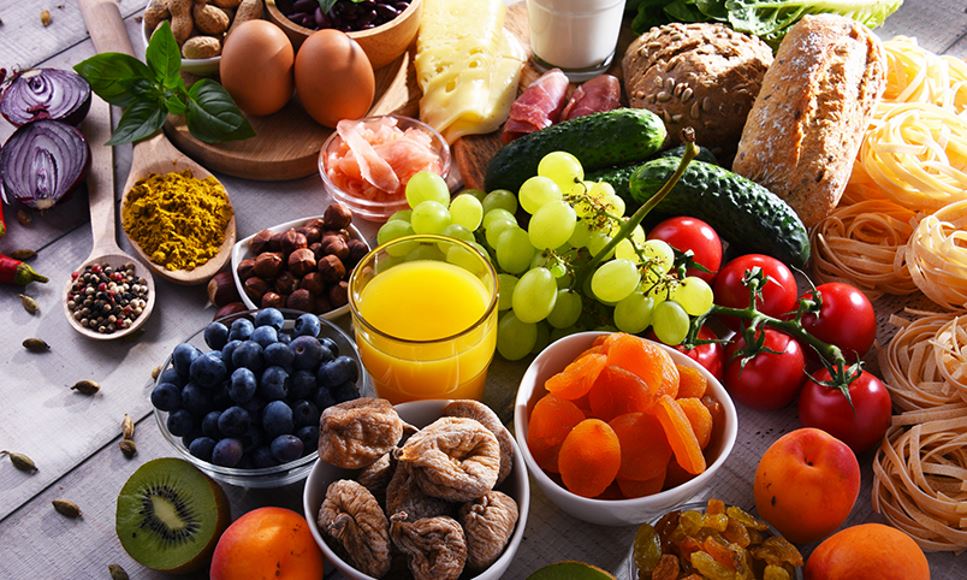
Food, in its essence, is more than just sustenance for the body. It embodies cultural heritage, social traditions, and individual preferences. From the dawn of humanity, the quest for food istanbul-yanginmerdiveni.com has shaped civilizations, fostered community bonds, and provided a canvas for culinary creativity. In this article, we delve into the multifaceted world of food, exploring its nutritional value, cultural significance, impact on health, sustainability, and future trends.
Introduction to Food
Food is a fundamental aspect of human existence, essential for survival and well-being. Beyond its biological necessity, food holds symbolic and social significance, serving as a cornerstone of cultural identity and social interaction. The evolution of food culture parallels the development of societies, reflecting geographical, historical, and socioeconomic factors.
Nutritional Value of Food
Understanding the nutritional composition of food is crucial for maintaining optimal health. Macronutrients such as carbohydrates, proteins, and fats provide energy, while micronutrients including vitamins and minerals support various physiological functions. A balanced diet comprising a variety of food groups ensures adequate nutrition and promotes overall health and vitality.
Types of Food
The food we consume encompasses a wide array of categories, each offering unique nutritional benefits and culinary experiences. Fruits and vegetables provide essential vitamins and antioxidants, while grains and legumes offer fiber and carbohydrates. Dairy products and their alternatives serve as sources of calcium and protein, and protein-rich foods such as meat, fish, and tofu contribute to muscle growth and repair.
Cultural Significance of Food
Food plays a pivotal role in shaping cultural identity and fostering social cohesion. Traditional cuisines reflect historical traditions, regional ingredients, and culinary techniques passed down through generations. Rituals and celebrations often revolve around communal meals, reinforcing bonds between family members and communities. Moreover, food serves as a tangible expression of cultural heritage, preserving traditions in an ever-changing world.
Food and Health
The relationship between food and health extends beyond mere sustenance, influencing physical well-being and mental health. A diet rich in fruits, vegetables, and whole grains reduces the risk of chronic diseases such as cardiovascular disorders and diabetes. Furthermore, certain foods, such as fatty fish and nuts, contain omega-3 fatty acids and other nutrients that support cognitive function and emotional well-being. However, poor dietary habits can contribute to obesity, malnutrition, and mental health disorders, highlighting the importance of mindful eating and nutrition education.
Food Production and Sustainability
The methods by which food is produced have significant implications for both human health and the environment. Conventional agriculture practices, such as monocropping and pesticide use, can degrade soil quality, deplete natural resources, and contribute to biodiversity loss. In contrast, sustainable farming methods such as organic farming, permaculture, and agroforestry prioritize environmental stewardship, soil regeneration, and biodiversity conservation. Additionally, reducing food waste and adopting plant-based diets can mitigate the carbon footprint of food production and promote ecological sustainability.
Food Trends
The culinary landscape is constantly evolving, shaped by changing consumer preferences, technological advancements, and cultural influences. Plant-based diets are gaining popularity due to their health benefits and environmental sustainability, with an increasing number of people opting for vegetarian and vegan alternatives. Superfoods, characterized by their nutrient density and health-promoting properties, have garnered attention for their potential to enhance vitality and well-being. Moreover, fusion cuisine, which blends diverse culinary traditions and flavors, reflects the interconnectedness of global food cultures and the spirit of culinary innovation.
Food and Social Media
The rise of social media platforms has transformed the way we interact with food, turning cooking and dining into visual experiences shared with a global audience. Food bloggers, influencers, and amateur chefs leverage platforms such as Instagram, TikTok, and YouTube to showcase culinary creations, share recipes, and engage with food enthusiasts worldwide. Food photography has emerged as an art form, with aesthetically pleasing images enticing viewers to explore new cuisines and dining experiences. Online communities centered around food offer a space for enthusiasts to exchange ideas, seek inspiration, and connect with like-minded individuals, fostering a sense of belonging and camaraderie.
Globalization of Food
Advancements in transportation and trade have facilitated the global exchange of food, leading to the proliferation of international cuisines and culinary diversity. From sushi in Tokyo to tacos in Mexico City, the world is teeming with culinary delights that reflect the cultural heritage and culinary expertise of diverse communities. However, globalization has also raised questions of cultural appropriation and food sovereignty, prompting conversations about authenticity, representation, and ethical consumption. As food continues to transcend borders and bridge cultural divides, it is essential to celebrate culinary diversity while honoring the traditions and knowledge systems of local food cultures.
The Future of Food
As we look to the future, the trajectory of food innovation holds promise for addressing pressing challenges such as food insecurity, environmental degradation, and public health crises. Technological advancements in areas such as vertical farming, cellular agriculture, and lab-grown meat have the potential to revolutionize food production, making it more efficient, sustainable, and accessible. Moreover, interdisciplinary collaborations between scientists, chefs, policymakers, and entrepreneurs are driving innovation in food science, culinary arts, and food systems management. By embracing creativity, sustainability, and inclusivity, we can shape a future where food nourishes not only our bodies but also our communities and the planet.
Conclusion
Food is a universal language that transcends boundaries, uniting people from diverse backgrounds in the shared experience of nourishment and enjoyment. From the humblest of meals to the most elaborate feasts, food embodies the richness of human culture, creativity, and resilience. As we navigate the complexities of modern life, let us cherish the connections forged through food, honor the traditions that sustain us, and embrace the limitless possibilities of culinary innovation.
